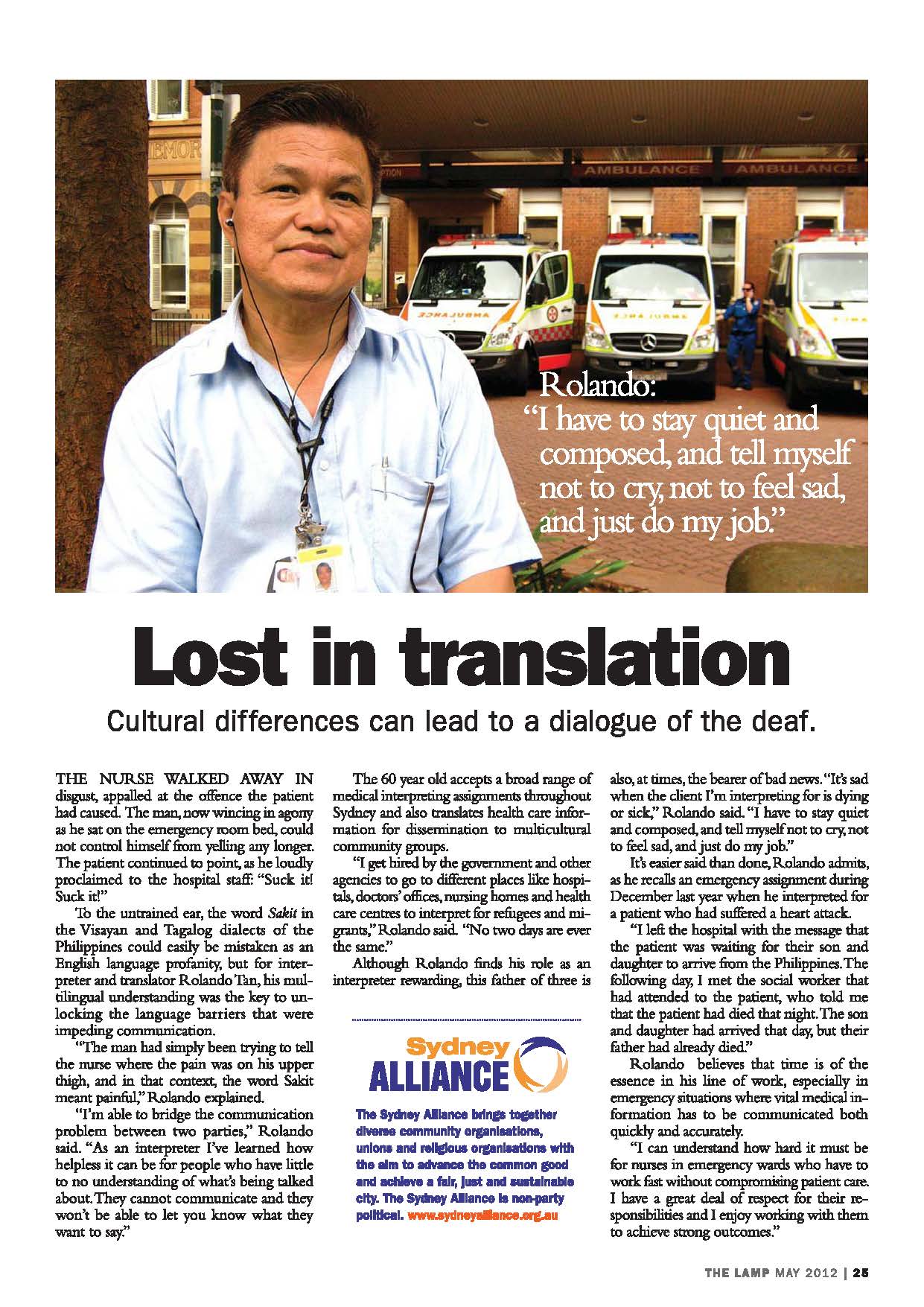Feature | Union \ Sydney Alliance
Lost in translation
SYDNEY, May 23, 2012 (NSWNMA: Maria Tan) - Cultural differences can lead to a dialogue of the deaf.
The nurse walked away in disgust, appalled at the offence the patient had caused.
The man, now wincing in agony as he sat on the emergency room bed, could not control himself from yelling any longer.
The patient continued to point, as he loudly proclaimed to the hospital staff: “Suck it! Suck it!”
To the untrained ear, the word Sakit in the Visayan and Tagalog dialects of the Philippines could easily be mistaken as an English language profanity, but for interpreter and translator Rolando Tan, his multilingual understanding was the key to unlocking the language barriers that were impeding communication.
“The man had simply been trying to tell the nurse where the pain was on his upper thigh, and in that context, the word Sakit meant painful,” Rolando explained.
“I’m able to bridge the communication problem between two parties,” Rolando said.
“As an interpreter I’ve learned how helpless it can be for people who have little to no understanding of what’s being talked about. They cannot communicate and they won’t be able to let you know what they want to say.”
The 60‐year‐old accepts a broad range of medical interpreting assignments throughout Sydney and also translates health care information for dissemination to multicultural community groups.
“I get hired by the government and other agencies to go to different places like hospitals, doctors’ offices, nursing homes and health care centres to interpret for refugees and migrants,” Rolando said. “No two days are ever the same.”
Although Rolando finds his role as an interpreter rewarding, this father of three is also, at times, the bearer of bad news.
“It’s sad when the client I’m interpreting for is dying or sick,” Rolando said. “I have to stay quiet and composed, and tell myself not to cry, not to feel sad, and just do my job.”
It’s easier said than done, Rolando admits, as he recalls an emergency assignment during December last year when he interpreted for a patient who had suffered a heart attack.
“I left the hospital with the message that the patient was waiting for their son and daughter to arrive from the Philippines. The following day, I met the social worker that had attended to the patient, who told me that the patient had died that night. The son and daughter had arrived that day, but their father had already died.”
Rolando believes that time is of the essence in his line of work, especially in emergency situations where vital medical information has to be communicated both quickly and accurately.
“I can understand how hard it must be for nurses in emergency wards who have to work fast without compromising patient care. I have a great deal of respect for their responsibilities and I enjoy working with them to achieve strong outcomes.”
——————————————————————————–
The Sydney Alliance brings together diverse community organisations, unions and religious organisations with the aim to advance the common good and achieve a fair, just and sustainable city. The Sydney Alliance is non-party political. www.sydneyalliance.org.au
(Words & Photos: Maria Tan, NSWNMA)


